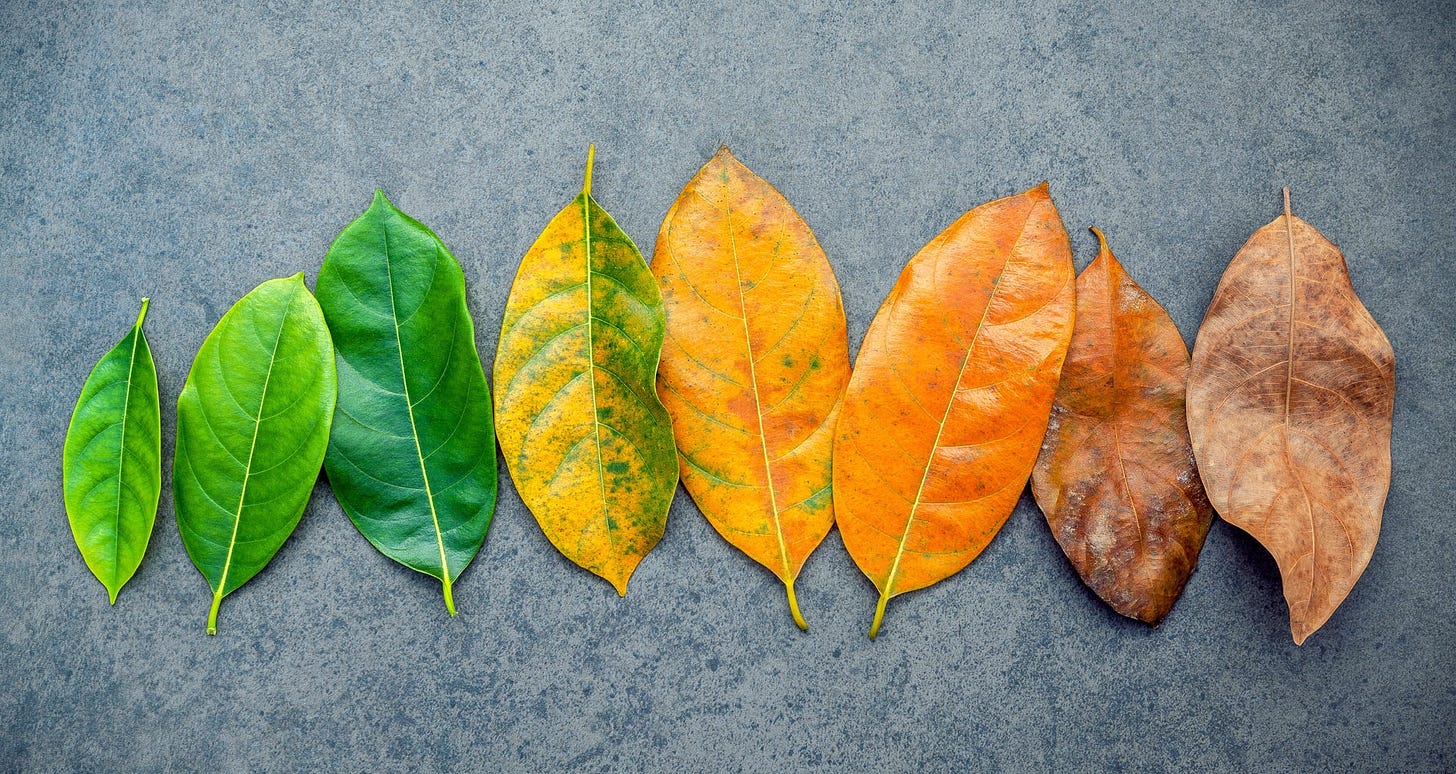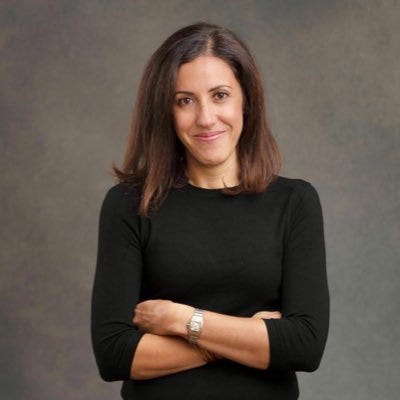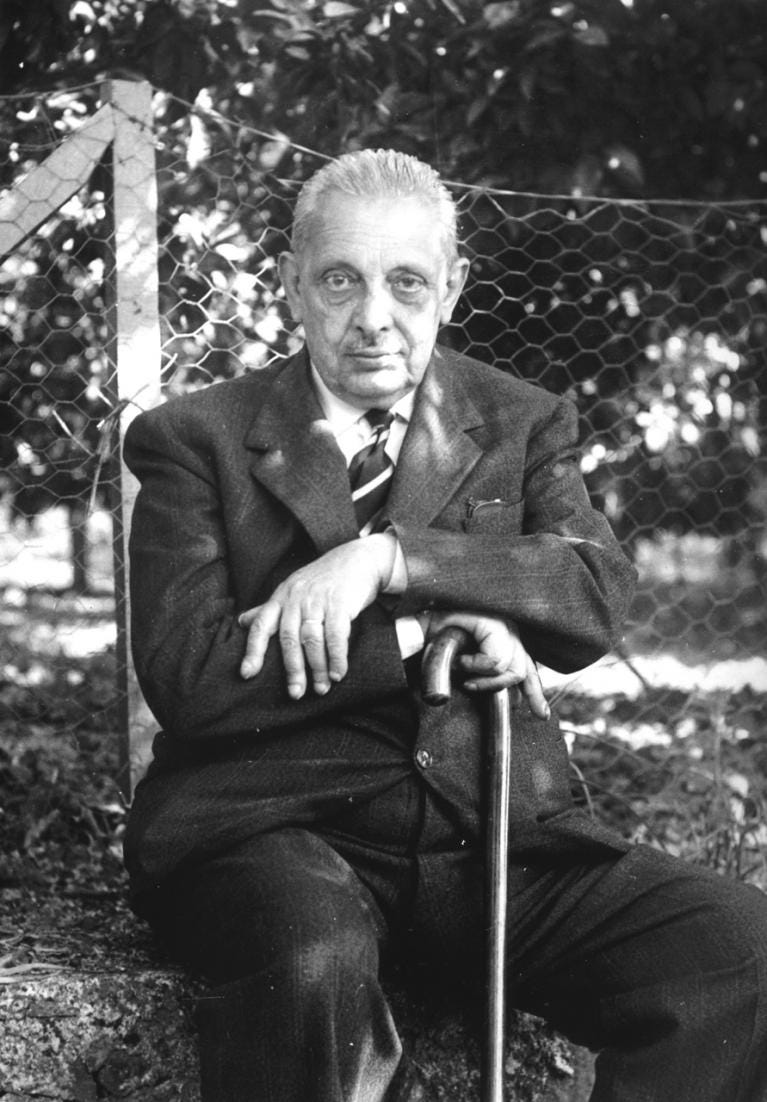NBN Newsletter #13
Featuring a curated playlist about the seasons and an interview with journalist Azadeh Moaveni
Seasons

Since Roman times, the calendar year has been segmented into the four seasons we commonly know today: Winter, Spring, Summer, and Autumn. In our modern age, the significance of the changing seasons is limited for the most part in adult life to the comings and goings of holidays and cold-weather clothing. But these changes affect us more than we might think. Like other animals, we too internalize the changes in temperature and exposure to daylight the seasons bring. Beyond our reliance on crop growth and food harvesting, there appears to be a direct impact on our biology as a result of seasonality. Our sleep cycle is modified, our mood is impacted, and even our susceptibility to certain diseases is affected by the month in which we were born.
While the astronomical and meteorological measuring of seasons is objective, the way in which we divide our human-constructed calendar is more subjective, based on our own environment and needs. For example, the Old Kingdom of Egypt broke the year into three equal parts (and 5 extra days), whereas the D'harawal calendar in Australia is broken down more precisely into seven seasons to reflect the diversity in temperature and wetness found in what is now New South Wales.
In this week’s playlist, we feature episodes on seasons, both ecological and metaphorical.
Playlist
Sherzod Muminov, Eleven Winters of Discontent: The Siberian Internment and the Making of a New Japan (Harvard University Press, 2022)
Linda LeGarde Grover, Onigamiising: Seasons of an Ojibwe Year (University of Minnesota Press, 2017)
Nomi Claire Lazar, Out of Joint: Power, Crisis, and the Rhetoric of Time (Yale University Press, 2019)
College Baseball in the Offseason: Meet the Savannah Bananas
Sanja Perovic, The Calendar in Revolutionary France: Perceptions of Time in Literature, Culture, Politics (Cambridge University Press, 2012)
Andreea Kaltenbrunner, For the Faith, Against the State: Old Calendarism in Romania (1924-1936) (De Gruyter, 2022)
Alexus McLeod, Philosophy of the Ancient Maya: Lords of Time (Lexington Books, 2018)
Vanessa Ogle, The Global Transformation of Time: 1870-1950 (Harvard University Press, 2015)
James K. A. Smith, How to Inhabit Time: Understanding the Past, Facing the Future, Living Faithfully Now (Brazos Press, 2022)
John Morton, Celebrate Winter: An Olympian's Stories of a Life in Nordic Skiing (Morton Trails, 2020)
Paul Jankowski, All Against All: The Long Winter of 1933 and The Origins of the Second World War (Harper, 2020)
Paula Huston, A Season of Mystery: 10 Spiritual Practices for Embracing a Happier Second Half of Life (Loyola Press, 2012)
Scholarly Sources
Azadeh Moaveni is a journalist who has been covering the Middle East for two decades. She lectures in journalism at New York University, London and directs the Gender and Conflict Project at the International Crisis Group.
Q: What are you reading right now?
A: Bedstand: Ghaith Abdul-Ahad’s A Stranger In Your Own City, a book of memoir and reportage on what happened to Iraq, Ninth Street Women by Mary Gabriel, on the women of the postwar American modern art world, and The House of Fragile Things by James McAuley, about Jewish art collectors in France, a very gorgeous and tragic book.
I’m also listening to The Aspern Papers, a Henry James novella.
Q: What is your favorite book or essay to assign to give to people and why?
A: Katherine Boo’s Behind the Beautiful Forevers is a masterclass in immersive ethnographic narrative non-fiction that compels readers to care deeply about poverty in the Global South, specifically a slum in Bombay. It does so without absolving any actors of their complicity in the slum’s desolation and actually explains how graft and corruption work solely through storytelling.
Q: Is there a book you read as a student that had a particularly profound impact on your trajectory as a scholar?
A: This will be most unoriginal, but there’s no way around it — Edward Said’s Orientalism and also Culture and Imperialism completely shaped me. I feel very distant from the contemporary Said acolytes and academics who have taken a direction I believe would have distressed him.
Q: Which deceased writer would you most like to meet and why?
A: Noël Coward would be sparkling company, I’m sure of it. Being entertaining is at the heart of his writing. Also Giuseppe Tomasi de Lampedusa, so we could mournfully discuss the end of a lost feudal world that was, in many ways, kinder and more meaningful.
Q: What's the best book you've read in the past year?
A: I finally read Graham Greene’s The Heart of the Matter, which flattened me. What an extraordinary meditation on the destructive power of guilt and the destructive power of the absence of guilt, both within a marriage and between nations.
Q: Have you seen any films, documentaries, or museum exhibitions that left an impression on you recently?
A: I watched the series, The Lying Life of Adults, and wondered why it is so difficult to turn Elena Ferrante’s work into film. I also saw the Tudors exhibition at the Met, which assembled many portraits I’d seen before on their own into a mounting story of baroque ruthlessness. It was splendid.
Q: What do you plan on reading next?
A: Vasily Grossman’s Life and Fate.
New Books, Links, & Other Things
James B. Nardi, The Hidden Company That Trees Keep: Life from Treetops to Root Tips (Princeton UP, 2023)
Manan Kapoor, A Map of Longings: The Life and Works of Agha Shahid Ali (Yale UP, 2023)
Matthew Boswell and Antony Rowland, Virtual Holocaust Memory (Oxford UP, 2023)
Interested in Becoming an NBN Host?
Are you interested in becoming a New Books Network host? Are you a professor, graduate student, or an expert in a particular field of study? Apply to become a host to help support our mission of creating a free and accessible academic library!









